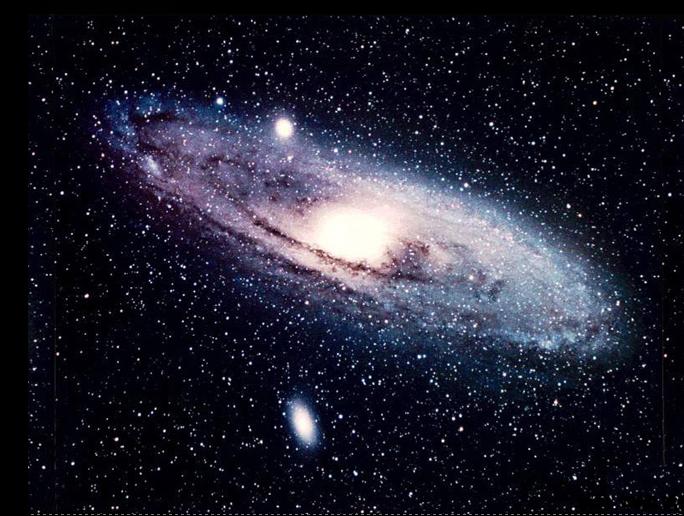For a long time the Big Bang theory had one gaping hole that troubled a lot of people—namely that it couldn't begin to explain how we got here. Although 98 percent of all the matter that exists was created with the Big Bang, that matter consisted exclusively of light gases: the helium, hydrogen, and lithium that we mentioned earlier.
很长时间以来,大爆炸理论有个巨大的漏洞,许多人对此感到不解--那就是,它根本无法解释我们是怎么来到这个世界上的。虽然存在的全部物质中有98%是大爆炸创造的,但那个物质完全由轻的气体组成:我们上面提到过的氦、氢和锂。

Not one particle of the heavy stuff so vital to our own being—carbon, nitrogen, oxygen, and all the rest—emerged from the gaseous brew of creation. But—and here's the troubling point—to forge these heavy elements, you need the kind of heat and energy of a Big Bang. Yet there has been only one Big Bang and it didn't produce them. So where did they come from?
对于我们的存在至关重要的重物质--碳、氮、氧以及其他一切,没有一个粒子是宇宙创建过程中产生的气体。但是--难点就在这里--若要打造这些重元素,你却非要有大爆炸释放出来的那种热量和能量不可。可是,大爆炸只发生过一次,而那次大爆炸没有产生重元素。因此,它们是从哪儿来的?
Interestingly, the man who found the answer to that question was a cosmologist who heartily despised the Big Bang as a theory and coined the term "Big Bang" sarcastically, as a way of mocking it. We'll get to him shortly, but before we turn to the question of how we got here, it might be worth taking a few minutes to consider just where exactly "here" is.
有意思的是,找到这个问题答案的人却是一位压根儿瞧不起大爆炸理论的宇宙学家,他还创造了大爆炸这个词来加以讽刺挖苦。我们很快就会讲到他。不过,在讨论我们怎么来到这里之前,我们先花几分钟时间来考虑一下到底什么是"这里",这也许是很值得的。
来源:可可英语 //www.utensil-race.com/Article/201510/404778.shtml












